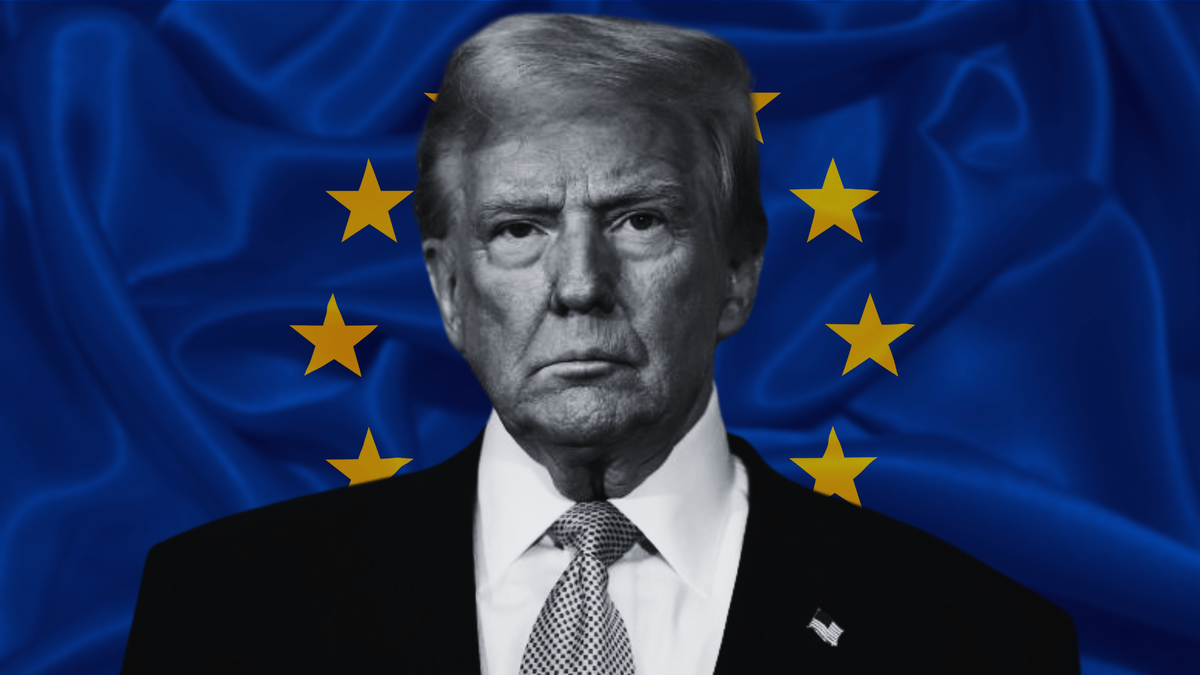What Donald Trump’s Victory in the 2024 Election Means for Europe

Donald Trump has returned to the White House, and his second term is poised to send ripples through Europe’s economic, political, and security landscape. With a combative "America First" agenda, Trump’s policies promise to upend EU priorities in energy, climate, trade, and defense. Here’s a closer look at how Europe may be affected.
Energy: A Fossil Fuel Revival Threatens Europe’s Green Transition
Trump’s mantra, “drill, baby, drill,” underscores his focus on maximizing fossil fuel production. He has pledged to expand oil and gas extraction, including lifting Biden-era restrictions on liquefied natural gas (LNG) projects—a move that could increase American LNG exports to Europe. While this could offer temporary relief to Europe’s energy security woes, it clashes with EU goals for decarbonization.
The potential repeal of the U.S. Inflation Reduction Act (IRA), a cornerstone of green energy investment, may also create new challenges for Europe. The IRA’s subsidies have lured green-tech industries away from Europe to the U.S., but its cancellation could slow global progress on renewable energy and provide Brussels with a fleeting advantage in green competition.
Climate: An Unraveling of Global Climate Action
Under Trump, the U.S. is expected to withdraw from the Paris Agreement, halting global momentum on combating climate change. Europe, which has positioned itself as a leader in climate action, may face a more fragmented international landscape. Trump’s fossil-fuel-centric policies could also exacerbate climate risks, leaving the EU to manage the fallout from a warming planet, including more frequent natural disasters.
Global climate finance may take a hit as well. Trump’s disinterest in funding climate adaptation for poorer nations could stall critical negotiations at forums like COP28, leaving Europe to fill the financial and leadership void. Without U.S. backing, developing countries may struggle to secure funds for transitioning to cleaner energy sources, undermining global climate goals.
Trade: Renewed Tensions and Tariffs
Trump’s "America First" trade policies are likely to reintroduce tariffs, including threats of 10-20% levies on all European imports. Such measures could reignite trade wars, hurting key European industries like automotive and aerospace. This would be a significant setback for the EU, which has struggled to resolve trade disputes even under the Biden administration.
The EU’s paused retaliatory tariffs against U.S. goods, as well as unresolved disputes over subsidies for Airbus and Boeing, may escalate under Trump’s presidency. These tensions could strain transatlantic economic ties, forcing the EU to explore diversification of trade partnerships.
Defense: Europe’s Security Autonomy Put to the Test
Trump’s reelection raises doubts about U.S. commitment to NATO, as he has previously threatened to leave the alliance. This uncertainty could push Europe to take greater responsibility for its own defense. While this might catalyze EU collaboration on defense initiatives, it could also lead to increased bilateral deals with Washington as countries vie to secure U.S. support individually.
The war in Ukraine is another pressure point. Trump’s stated intention to push for negotiations—potentially on terms favorable to Moscow—could weaken European resolve and unity in supporting Ukraine. A reduction in U.S. military aid would further strain Kyiv and shift more of the burden onto Europe.
Technology: A Fractured Approach to Innovation and Standards
A Trump presidency could dissolve the U.S.-EU Trade and Technology Council (TTC), established to align policies on issues like artificial intelligence and semiconductor supply chains. The collapse of this diplomatic channel would hinder cooperation on global tech governance, just as AI regulation becomes a critical international issue.
Trump’s close ties to Elon Musk, who owns the social media platform X, could further complicate relations. Any EU regulatory action against X could exacerbate tensions, reinforcing Trump’s narrative that the EU unfairly targets U.S. tech giants.
Financial Stability: Risks to Global Economic Equilibrium
Trump’s economic policies—from imposing tariffs to influencing the Federal Reserve—could destabilize global markets, with Europe among the hardest hit. Analysts predict the euro could depreciate by up to 10% against the dollar under Trump’s tariff plans, squeezing European exporters.
Additionally, Trump’s disregard for international financial regulations, such as Basel III banking rules, could undermine global efforts to maintain financial stability. A less cooperative U.S. may embolden other countries to relax regulatory standards, increasing risks of financial crises.
Green and Industrial Policies: Diverging Paths
Trump’s hostility toward green regulation will deepen transatlantic divides. For example, his administration’s rollback of environmental rules may leave EU companies at a competitive disadvantage in the U.S. market. Meanwhile, efforts to establish global standards for corporate sustainability reporting may stall, frustrating Brussels’ ambitions to create a level playing field.
Implications for European Industry
European carmakers are bracing for higher tariffs under Trump’s protectionist policies, which could incentivize some firms to relocate production to the U.S. Aerospace companies like Airbus may face additional hurdles as Trump prioritizes rescuing Boeing through protectionist measures.
Cybersecurity: A Potential Retreat from Global Norms
Trump’s approach to cybersecurity could undermine international efforts to regulate commercial spyware. If his administration lifts restrictions on firms like Israel’s NSO Group, global misuse of surveillance technology could surge, posing risks to privacy and security worldwide.
Europe’s Strategic Response
Trump’s return to power highlights the fragility of Europe’s reliance on U.S. leadership. The EU faces a choice: strengthen its autonomy or endure greater volatility in transatlantic relations. This could mean ramping up defense spending, accelerating green tech investments, and pushing for greater economic and political integration.
While Trump’s presidency introduces significant challenges, it may also serve as a wake-up call for Europe to assert itself as a more independent global actor. Whether the EU can rise to the occasion remains to be seen.


